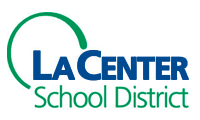2415P
Procedure: Performance-Based Pathway for High School GraduationApproving Student Proposals/Learning Contract
A student proposal for a performance-based pathway is created by the student with an advisor’s help. The district or schools may also develop and facilitate performance-based pathway opportunities, for example a school may work with a local employer to provide student internships that serve as a performance-based learning experience. A student may opt to sign a learning contract to meet the graduation pathway requirement through an opportunity created by a school or the district. Both student proposals and student learning contracts must include:
- A list of the learning standards in English language arts (ELA) and/or math that will be addressed. The list must include state required performance-based pathway learning standards and must comply with state guidance on identification of learning standards for performance-based pathways.
- A description of the student learning experience, including relevant safety measures to ensure student safety. Safety measures to be considered may include:
- Work-based learning rules (WAC 392-410-315)
- Industry safety standards
- Youth employment regulations
- District risk-management practices
- A description of the product the student will create based on the learning experience.
- A brief statement by the student identifying how the learning experience aligns with the student’s goals as described in the student’s High School and Beyond Plan.
- Identification of people who will assist with the performance-based pathway including at minimum:
- A performance-based pathway advisor who will monitor the student’s progress in completing the performance-based pathway, help ensure alignment of the pathway with the student’s High School and Beyond Plan goals, and advise the student as needed. The advisor may be a teacher, counselor, administrator, certificated or non-certificated staff, or an external partner approved by the district or school to work with students.
- Evaluator(s) who will determine if the student’s product meets proficiency targets in the ELA or math learning standards identified in the proposal or learning contract. The evaluators must include at least one certificated teacher (or teacher with other applicable qualifications, as permitted by the Professional Educator Standards Board) endorsed in the relevant subject area (ELA and/or math).
Approval of student proposals and learning contracts:
Student proposals will be approved by an educator or panel of educators, including teachers, counselor, or administrators, identified by a high school principal or the superintendent. Performance-based learning contract opportunities (developed by the school or district) will be approved by the School Board or its designee. The student proposal or the learning contract opportunity will be approved if it is found that:
- The student learning experience and resulting product will provide the student adequate opportunity to demonstrate knowledge and skills that address the learning standards identified in the proposal.
- The student learning experience complies with district policies that address student safety and district risk management, including parent/guardian approval if appropriate.
Assessing Student Products
Whether a student meets the graduation pathway requirement through a performance-based pathway option is a local decision made by the evaluator(s) based on the student’s demonstration of meeting ELA and/or math standards identified in the student proposal or the learning contract.
The evaluation may be performed by a single evaluator or a panel of evaluators and may be a collaboration between schools or between multiple districts. External partners may participate as evaluators, provided that the evaluation involves at least one certificated teacher endorsed in the relevant subject area or areas (or teacher with other applicable qualifications, as permitted by the Professional Educator Standards Board).
The evaluation must use state evaluation tools, including rubrics and proficiency targets.
Adoption Date: March 26, 2024
